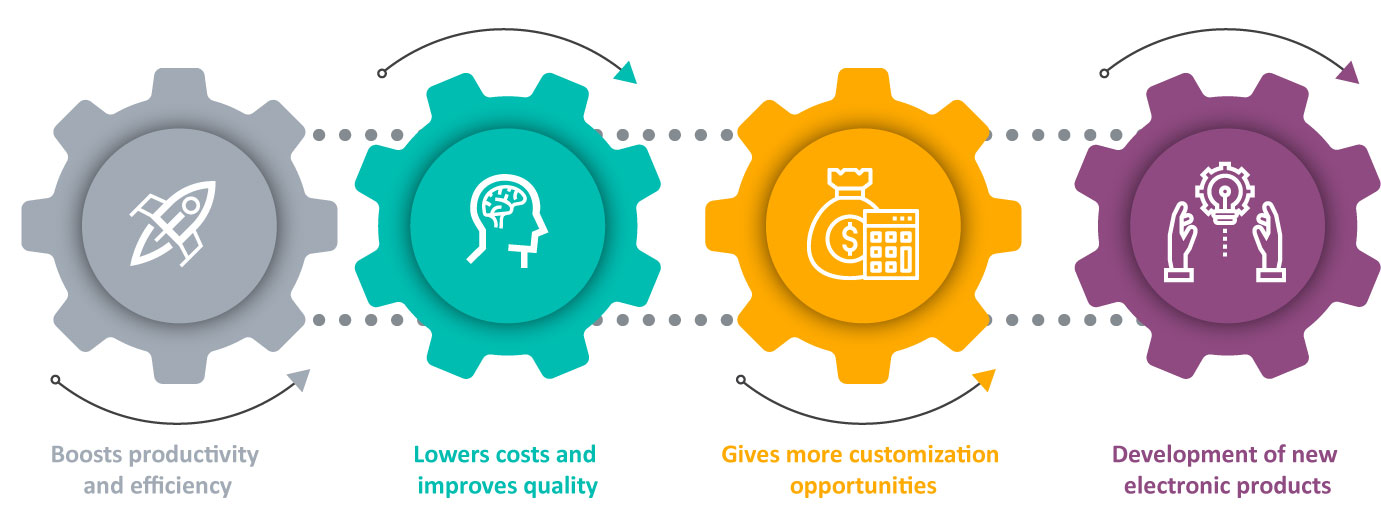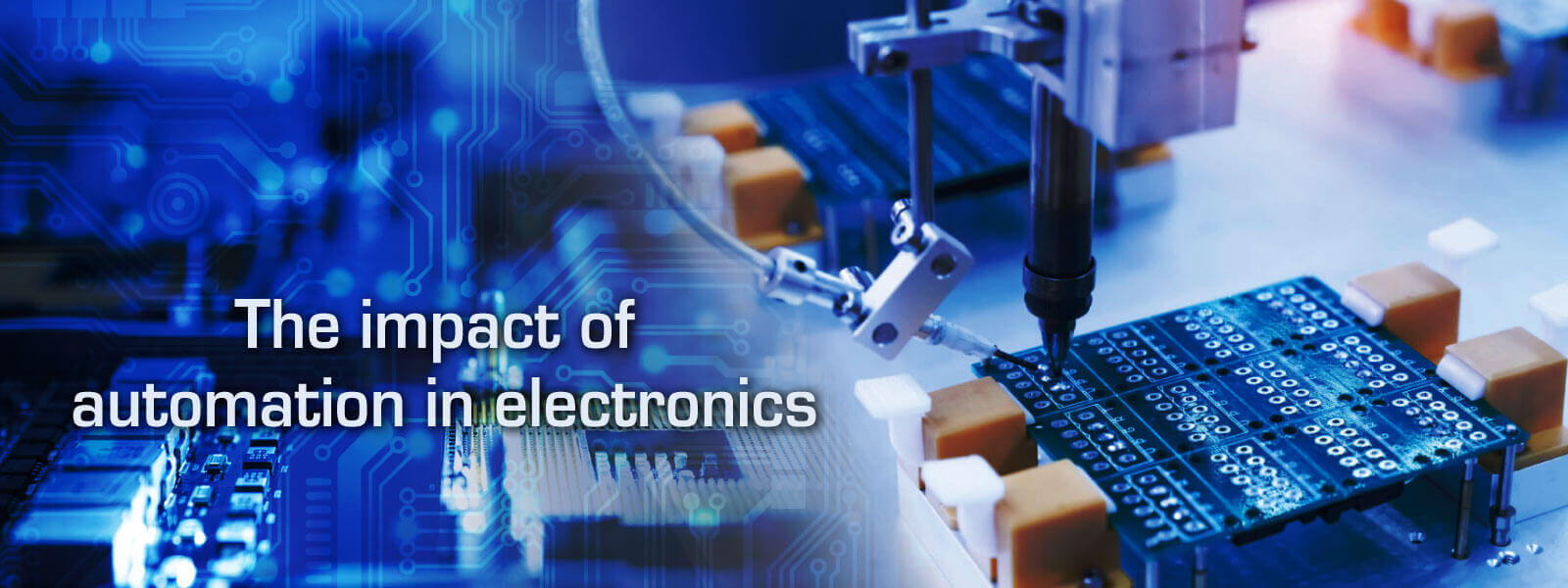The Impact of Automation on Electronics
The electronics industry is one of the most rapidly growing industries worldwide. It is a complex branch of production engineering and involves a large number of production steps and engineering activities, including product design, prototyping, modelling, simulation, test, inspection, quality & control, monitoring and controlling semiconductor manufacturing processes and assembling and packaging of electronic systems. Therefore, the range of automation in this field is very wide. Automation is a mammoth topic covering areas starting from simple control systems handling processes and machines, digital manufacturing to the much-hyped Smart Factory and Industry 4.0.
Let’s through lights on some of the impacts of automation on the electronics industry

Boosts productivity and efficiency
No doubt a machine can’t match the human skills and creativity, but when it comes to repetitive tasks, it can perform better than the humans. With the advent of Industry 4.0, businesses are experiencing a higher degree of accuracy and better productivity.Industry 4.0 encompasses robotic technologies, Internet of Things (IoT), cloud computing, machine learning and artificial intelligence.
Lowers costs and improves quality
Robotic technology lowers costs and improves quality in the production process. For instance, robots can handle display screens, assemble connectors and build subassemblies etc. without demanding much inputs from the human.
Gives more customization opportunities
As the demand for customized and personalized products is on the rise, electronic manufacturers get a greater opportunity for customization. While Smart Factories allow the manufacturers to boost production flexibility, robots and sensors in assembly line allow them to mass-produce products designed to meet varied requirements.
Development of new electronic products
Automation triggers the development of new electronic products and systems. Development of 3D printing prototypes can be cited as an example of it. v5 Semiconductors takes immense pride in backing its valuable clients with such advanced technologies.
Conclusion
In a nutshell, automation in electronics is a step beyond mechanization. The adoption of industrial robots is continuing to accelerate in the electronics industry. Earlier, automation in the industry used to intend improving productivity and reducing costs, but now the focus has been shifted to improving quality and nimbleness.
